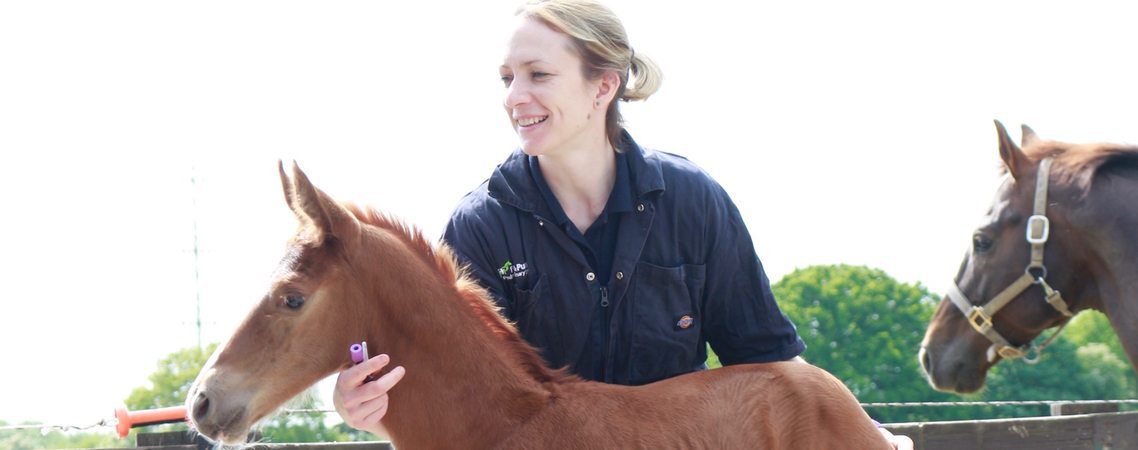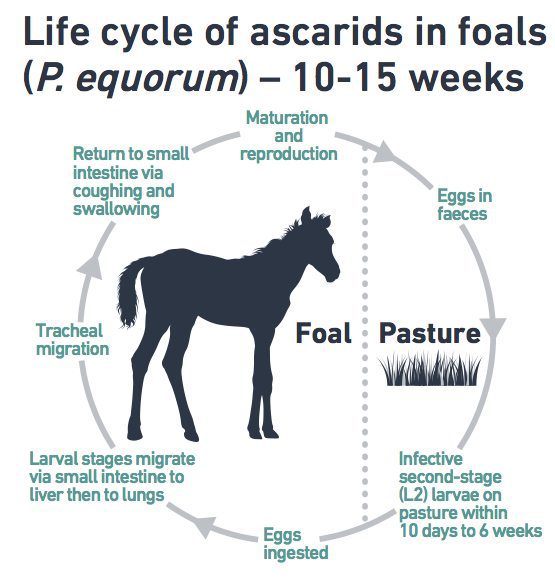
Foals – Part 2
Nurse Blog - Worming the foal
Foaling season is in full swing for the practice and we have started seeing new arrivals already. Breeding a mare can be a wonderful experience, but foals do require extra dedication and care to thrive. A proactive approach to your mare and foal’s healthcare will help towards a smooth pregnancy and foaling, and help foals get off to the very best start in life.
As a practice we would always advise you discussing your broodmare with us, and we will be happy to advise you on any aspect of the arrival of the foal. It helps us respond immediately if we know when the mare is due to foal, and time is of the essence in these cases.
A new “Caring for your Mare and Foal” booklet is now available to download and is the latest in the series of the Responsible Horse Owner booklet from MSD Animal Health (the download is available on this page). It contains information on care of the pregnant mare, foaling, and the newborn foal as it grows older. We recommend vaccinating all foals and following recommendations from your vet on worming the young foal, as worms can cause serious problems in youngsters. Using a supplement such as Coopers® Gut Equalise from birth (after the first suckle) can help establish a healthy balance of gut bacteria and help your foal start life in optimal health.

Effective parasite control is necessary to ensure a good start for your foal
The most important parasite in foals and youngstock is the ascarid Parascaris equorum.
– These are whitish roundworms which can grow extremely long (up to 40cm)
– They can cause blockage of the gut, causing colic which may be fatal in severe cases
– They can also cause more subtle signs, such as poor growth, pot belly, rough coat and coughing
– Migration by larvae (immature worms) through the lungs and liver damages these organs
– Ascarid eggs are very resilient and can remain dormant on pasture from year to year, so fresh grazing for mares and foals is ideal
– It is recommended that foals are wormed with fenbendazole at 8-10 weeks and again at weaning to control ascarids. The foal will then develop a natural immunity to this parasite
Nurse Blog - Foal Worming Protocol

Call the practice or visit our online shop to get your wormers
Nurse Blog - Weaning the foal

Weaning:
Usually weaning is carried out when the foal is around 5 -6 months old. This is often a stressful time for the foals and they are at an increased risk of developing gastric ulcers. Ensure the foal receives multiple ad-lib forage sources and plenty of turnout and is grouped together with other foals of a similar age and with similar nutrient requirements. Any dietary changes should be made gradually and it is important to monitor foals closely to ensure they grow at a steady rate. Most UK pastures are low in copper and other micronutrients so it may be advisable to feed a balancer; these can be provided without additional weight gain but talk to your vet or a nutritionist first.

Recent Comments